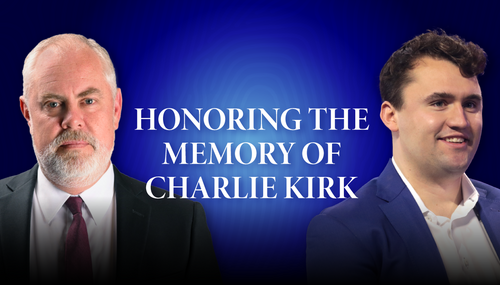Appearing on NBC's Meet the Press on Sunday, Random House executive editor Jon Meacham described the political comeback of Republicans: "...we were all sitting around in 2009, and this was a new era. It was an entirely different time. And I think it was a implacable opposition, which is not to say it's wrong, but it was an implacable opposition."
Host David Gregory quoted Meacham's introduction to a new Politico ebook, "The Right Fights Back": "The dawn of 2009 was supposed to inaugurate a new political age. After a decade of war and a year of epic economic collapse, a young Democratic president unscarred by the cultural conflicts of the Clinton years promised a 'post-partisan' ethos...Conservatism was said to be dead. Except it wasn't....How did American politics get from the 'there' of a new Age of Obama to the 'here' of a resurgent right?"

Dyson seized on the softball and slammed the GOP: "Yes. The politics of heartlessness and lack of compassion....I'm out in the streets of D.C., I see veterans who are homeless begging for money. This is the America we think we want? I don't think so."
Moments later, presidential historian Doris Kearns Goodwin urged the President to abandon his supposed moderation: "I think the post-partisanship has to go. That is what he came in hoping for, it proved not able to work. But if you look back at Roosevelt, FDR, he first tried to be a bipartisan leader, and then he got so hurt by the rancor of the Republican right, who called him a traitor to the class, that he went right after them, and he wins in a landslide."
She went on to advise: "There is a model for him in Teddy Roosevelt. Similar time to our, squeeze middle class, up and down gap between the rich and the poor....And he called for a square deal, fundamental fairness. And that's where the country's at right now. When Obama first talked about the failure of the supercommittee, when he put out his grand proposal, it was the idea that people want fairness, they want balance."
Fellow historian Michael Beschloss agreed: "He wants to run as the candidate of the 99 percent against the candidate of the 1 percent, be it Romney or Gingrich. That might be pretty effective. I think Doris is absolutely right."
Here is a transcript of the November 27 exchange:
11:15AM ET
DAVID GREGORY: We are back with more from our roundtable. We're talking about books about history, the Civil War and Andrew Jackson that we've been reading. And it is really – I mean, it does put in this kind of perspective, Jon, the, the idea that, you know, some of the social unrest in the country, it really sort of manifests itself in our politics in a way that dated before the Civil War, this kind of sectional politics rearing its head.
And you, and you try to capture more modern history here in a setup to an ebook about the return of the Republicans. This is out on Tuesday that you're doing for Politico. And this is what you write in the introduction: "The dawn of 2009 was supposed to inaugurate a new political age. After a decade of war and a year of epic economic collapse, a young Democratic president unscarred by the cultural conflicts of the Clinton years promised a 'post-partisan' ethos...Conservatism was said to be dead.
"Except it wasn't. Beginning in early 2009, dispirited Republicans, exhausted by President Bush and that regime," you write, "decided that while the presidency may have simply – seemingly," rather, "some easily to Barack Obama, nothing else would...."
"The rebirth of the right is an extraordinary tale. By historical standards it was a rapid shift, on par with the 1966 conservative backlash against Lyndon Johnson's Great Society after the 1964 landslide. And as conservatives well know, that drama ended with the election of a Republican president in 1968....How did American politics get from the 'there' of a new Age of Obama to the 'here' of a resurgent right?" That's a big question.
JON MEACHAM: It's the question, it seems to me. I mean, we, we, we were all sitting around in 2009, and this was a new era. It was an entirely different time. And I think it was a implacable opposition, which is not to say it's wrong, but it was an implacable opposition. And, to my, mind the President's greatest failure has been the remarkable inability to establish an enduring emotional connection with the people. He is known as a great orator, but he has not been a great explainer. And, therefore, I think that there's no real connection, real ongoing support for him. And so politics has become a very much cafeteria.
GREGORY: But, Michael, you, you have to be uncomfortable, I would imagine. You listen to Grover Norquist, I mean, you talk about that kind of anti-tax orthodoxy, and then you think about, as Senator Schumer said, what are the impact of, you know, spending cuts across the board on the middle class, on Americans who are out of work, on the poor in this country, when you talk about our politics barreling toward nowhere, frankly?
DYSON: Yes. The politics of heartlessness and lack of compassion. I think, look, what happened to the notion that the people who benefitted from the dance ought to pay the cost of the band? The reality is, is that the tax bailouts, the tax bonuses, and the tax breaks have been given to those who are at the top. Thank God that the supercommittee – a lot of people are saying, "Well, they failed." I think at least the Democrats grew a spine, stood up to the Republicans who wanted to let those tax – you know, those Bush tax cuts go on, and they said, "$600 billion, well, that $600 billion infused into the economy we could help a bunch of people." Now the interest around the Defense have gone forward, and said, "Those automatic triggers, no, we're not going to let those happen." But you want to let unemployment insurance expire? I mean, this is the lack of compassion.
GREGORY: But – yeah.
DYSON: I'm out in the streets of D.C., I see veterans who are homeless begging for money. This is the America we think we want? I don't think so.
GREGORY: So you think the, the resurgent right could explained differently?
LOWRY: Well, I think there are a couple of things. One, while you saw this rise of Democrat power in, in Washington after the '08 election, you saw simultaneous with that, in opinion polls, a rise of conservative sentiment in the country. And the delta between those two created a space for the Tea Party, which was a reaction to Obama's agenda, partly, but also a reaction against the Republican establishment, which, let's face it, had become lazy, in some instances corrupt and unpopular, and deserved to be burned down. And you have a lot of Republican sentiment now just desperate for someone who doesn't seem like the usual politician, and that accounts for a lot of the resistance to Romney.
DORIS KEARNS GOODWIN: But I think there's a space now for President Obama. I think the post-partisanship has to go. That is what he came in hoping for, it proved not able to work. But if you look back at Roosevelt, FDR, he first tried to be a bipartisan leader, and then he got so hurt by the rancor of the Republican right, who called him a traitor to the class, that he went right after them, and he wins in a landslide. You know, "The forces of entrenched greed hate me. I welcome their hatred." I don't think that'll work for Obama because he's not a warrior, a happy warrior in that way.
But there is a model for him in Teddy Roosevelt. Similar time to our, squeeze middle class, up and down gap between the rich and the poor. And what he does is say, "I like corporations as long as they do well by us. I like unions as long as they do well for us. But if they start screwing around with us, I'm going after them." And he called for a square deal, fundamental fairness. And that's where the country's at right now. When Obama first talked about the failure of the supercommittee, when he put out his grand proposal, it was the idea that people want fairness, they want balance. That's what Teddy Roosevelt was all about. Every sentence was balance.
GREGORY: Right. And he wants to take that fairness question...
GOODWIN: I think that's there.
GREGORY: ...to the ballot box next week – next year.
MICHAEL BESCHLOSS: He wants to run as the candidate of the 99 percent against the candidate of the 1 percent, be it Romney or Gingrich. That might be pretty effective. I think Doris is absolutely right.
(...)




